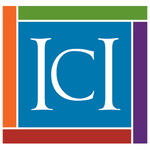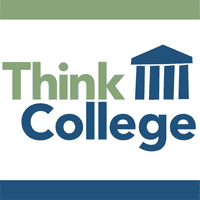New at ICI
We’re Hiring! The Institute for Community Inclusion is Hiring a New Director
November 6th, 2025
The Institute for Community Inclusion (ICI) at the University of Massachusetts Boston (UMass Boston) is hiring a new director to lead us into 2026. The ICI supports the rights of people with disabilities to participate in all aspects of society. We…
Exciting New Vocational Rehabilitation Projects Expand ICI’s Research and Training Efforts
October 23rd, 2025
The Institute for Community Inclusion (ICI) has been a leader in vocational rehabilitation (VR) research, training, and technical assistance for decades. In recent years, our VR- related work has largely focused on leadership development, Progressive…
ICI is seeking two postdoctoral fellows to join its Advanced Rehabilitation Research Training (ARRT) Program
October 10th, 2025
Beginning in Spring 2026, in collaboration with the School for Global Inclusion and Social Development (SGISD) and the National Association of State Directors of Developmental Disabilities Services (NASDDDS), the new program launches. Learn more…
ICI Director Cindy Thomas to Retire this November
October 6th, 2025
Congratulations to Cindy Thomas! On November 1, Cindy will retire from her position as ICI’s director. Cindy has held many dynamic roles at the ICI and Boston Children’s Hospital (BCH) over the past 43 years. After working as a case manager for the…
ICI’s Think College Awarded 5-Year $10 Million Grant
October 6th, 2025
The Institute for Community Inclusion (ICI) at UMass Boston is proud to announce that Think College will continue to lead as the long-standing National Coordinating Center (NCC) for the Transition and Postsecondary Programs for Students with…
Think College at the Institute for Community Inclusion at UMass Boston receives $10 Million Grant on Postsecondary Education for Students with Intellectual Disability
October 3rd, 2025
PRESS RELEASE For immediate release: October 3, 2025 Think College at the Institute for Community Inclusion at UMass Boston receives $10 Million Grant on Postsecondary Education for Students with Intellectual Disability Boston, MA — October 3, 202…
Taking Up Space: Advocating for my Right to Space as a Disabled Person with Cerebral Palsy
September 23rd, 2025
Written by Rachel Adams-Duffy, an advocacy advisor for the ICI. For as long as I can remember, I have had this strange feeling about being physically disabled. This feeling happens often, but especially when I use my wheelchair. There are many people…
The ICI’s ThinkWork Data Note Celebrates Issue 100
August 6th, 2025
Projects of National Significance focus on the most pressing issues affecting people with developmental disabilities and their families across the US. The ICI’s ThinkWork Access to Integrated Employment (AIE) is a Developmental Disabilities Project…
ICI Launches New Collaborative UMass DeafBlind Graduate Certificate Program this Fall
August 6th, 2025
A new collaboration between the Institute for Community Inclusion (ICI), UMass Boston Vision Studies program, New England Consortium on DeafBlindness (NEC), and Northeast Resource Center for Vision Education at UMASS Boston (NERCVE) has culminated in…
MA Dept. of Higher Education approved the regulations for the enhanced MAIPSE
May 7th, 2025
PRESS RELEASE For immediate release: May 7, 2025 Massachusetts Board of Higher Education Approves Regulations that Enhance Postsecondary Opportunities for Students with Intellectual and Developmental Disabilities Boston, MA — May 7, 2025 —The…



